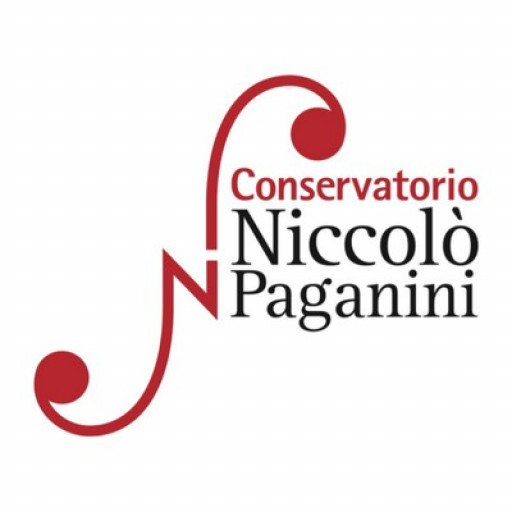Photos of university / #edinburghuniversity
Critical Theory (by research) at The University of Edinburgh offers an in-depth exploration of the foundational ideas and contemporary developments within the field of critical theory. This programme is designed for students who wish to engage rigorously with the intellectual currents that have shaped social, political, and cultural thought from the early 20th century to the present. Through a combination of advanced seminars, extensive research, and close engagement with primary and secondary texts, students will develop a comprehensive understanding of the key figures, texts, and debates that define critical theory. The programme emphasizes interdisciplinary approaches, incorporating philosophy, sociology, cultural studies, political theory, and literature to foster a multidisciplinary perspective. Students will have opportunities to critique existing theories and contribute original insights, preparing them for careers in academia, research, policy analysis, or related fields. The research-oriented structure encourages independent investigation, supported by faculty expertise and peer collaboration. The programme also focuses on the practical application of critical theory to contemporary issues such as social justice, identity politics, globalization, and media studies. Graduates will be equipped with analytical skills, critical thinking, and a nuanced understanding of complex social phenomena. The University of Edinburgh provides a vibrant intellectual community, with access to world-class resources including extensive library collections, seminar series, and conferences that enhance the research experience. Whether pursuing doctoral research or seeking a deeper theoretical foundation for professional practice, students will benefit from tailored supervision and a stimulating academic environment that fosters innovative thinking and rigorous scholarship in critical theory.
Critical Theory (by research) at The University of Edinburgh offers an in-depth exploration of the foundational ideas and contemporary developments within the tradition of critical thought. This program is designed for students and researchers who wish to engage rigorously with the intellectual legacy of critical theory, including its origins in the Frankfurt School, its development through Marxist, psychoanalytic, and cultural studies, and its ongoing relevance in analyzing societal structures and cultural phenomena. The curriculum emphasizes a multidisciplinary approach, integrating philosophy, sociology, literature, and political theory to foster a comprehensive understanding of critical methods and their applications.
Students will delve into key texts by influential thinkers such as Theodor Adorno, Max Horkheimer, Herbert Marcuse, Jürgen Habermas, and other significant figures who have shaped critical theory. The program encourages critical engagement with contemporary issues, including social justice, inequality, media influence, and identity politics, through the lens of critical theory. It aims to develop students' analytical skills, enabling them to critically assess cultural and societal narratives, perform complex textual and theoretical analyses, and contribute to ongoing debates within the field.
Throughout the program, research plays a central role, with students undertaking independent research projects that contribute to existing scholarship. These projects may involve detailed textual analysis, theoretical critique, or practical applications of critical theory to current social issues. The program fosters a vibrant intellectual community, providing access to seminars, conferences, and workshops where students can exchange ideas with leading scholars and fellow researchers.
Candidates typically possess a background in the humanities or social sciences, and the program provides support for developing advanced research skills, academic writing, and methodological approaches required for high-level scholarly work. Upon completion, graduates will be equipped with advanced knowledge of critical theory, a robust research toolkit, and the ability to produce original insights in academic, policy, or cultural fields. This program ultimately prepares students for careers in academia, research institutions, cultural organizations, and public policy, where critical theoretical skills are increasingly valued for analyzing and shaping the future social landscape.
Programme requirements for the MSc in Critical Theory (by research) at The University of Edinburgh typically include the completion of a substantial research project, demonstrating advanced understanding of theoretical concepts and critical analysis within the field. Applicants are expected to hold a relevant undergraduate degree, usually a good honours degree (minimum 2:1 or equivalent), in the humanities or social sciences, such as philosophy, cultural studies, or related disciplines. Evidence of prior engagement with critical theory or related subjects is advantageous. Applicants may be required to submit a personal statement outlining their research interests and motivation for pursuing the programme, along with two academic references attesting to their suitability for advanced study. Proficiency in English language is mandatory for non-native speakers, with accepted tests including IELTS, TOEFL, or equivalent standards. The programme is research-focused, encouraging independent scholarly work, so candidates should demonstrate strong written and verbal communication skills. The application process involves submitting an online application form, academic transcripts, a detailed research proposal (around 1,000 words), and supporting documents. There are usually no specific coursework requirements beyond the research component, but applicants are encouraged to have a background in critical theory, philosophy, or related disciplines. The admission process also considers the alignment of applicants' research interests with faculty expertise, particularly at the School of Humanities and Social Science. Financial aid options, such as scholarships or research grants, may be available, and prospective students are advised to explore funding opportunities through the university website. Successful applicants will work closely with a supervisor from the department to develop their research and complete the thesis within the designated timeframe, typically one year full-time or two years part-time.
The University of Edinburgh offers various funding options for students enrolled in the MSc in Critical Theory (by Research). Prospective students are encouraged to explore a range of financial support opportunities including university scholarships, studentships, and external funding sources. The university provides a limited number of partial fee waivers and bursaries specifically aimed at postgraduate research students, which applicants can apply for through the university’s central funding portal.
Additionally, students may be eligible for Research Council funding, such as those from UKRI, which support doctoral research programs across disciplines, including Critical Theory. International students are advised to seek out specific scholarships and awards targeted at their home countries, many of which are administered by governmental or private sector organizations. Students should also consider external funding options such as charitable foundations, cultural organizations, and academic fellowships that support research in humanities and social sciences.
The university recommends early planning and application for funding due to competitive selection processes and limited availability. International students should also account for additional costs including healthcare, travel, and living expenses, and explore funding that can cover these aspects. The university's financial aid office provides detailed guidance and assistance to help students identify suitable funding sources. Some students may opt for part-time work or teaching assistantships, which are occasionally available, to supplement their income during their studies. For detailed information, students should consult the official university funding pages and contact the university’s financial aid office directly to ensure they meet all eligibility criteria and application deadlines.
Critical Theory (by research) at the University of Edinburgh offers an in-depth examination of the foundational ideas and contemporary developments within critical theory, philosophy, and cultural analysis. The program is designed for students and researchers who wish to explore the theoretical frameworks that underpin critiques of society, politics, and culture. This program emphasizes original research, encouraging students to produce a substantial dissertation that contributes to the academic discourse in critical theory. The MSc or PhD pathways typically involve a combination of coursework, seminars, independent study, and supervision by leading scholars in the field. Students will engage with a broad range of texts, from classical Marxist and Frankfurt School theories to contemporary debates surrounding post-structuralism, feminism, race theory, and digital culture. The program fosters an interdisciplinary approach, integrating insights from philosophy, sociology, politics, and literature, allowing students to develop comprehensive analytical skills. The research-oriented nature of the program ensures that graduates are well-equipped for careers in academia, research institutions, cultural analysis, or policy development. Students benefit from the university’s rich academic environment, access to extensive library resources, and the support of faculty members deeply involved in current critical theory research. The program encourages participation in conferences, workshops, and collaborative projects, providing opportunities to engage with global debates and network with scholars worldwide. Graduates of the program are expected to develop advanced critical thinking, sophisticated writing, and research skills, positioning them prominently within academic and intellectual circles. The University of Edinburgh’s Critical Theory research program is highly regarded for its rigorous approach and contribution to understanding and reshaping contemporary society through critical perspectives.









